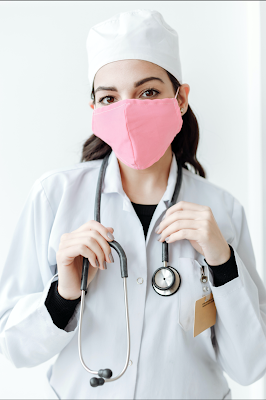Your liver is one of the most essential organs in your body. It helps to detoxify your blood, produce bile, and store glucose. If you want to keep your liver healthy, you need to take good care of it! This blog post will discuss how to take good care of your liver and keep it functioning correctly as well you need Fusion Recovery Centers

Via Pexels
1) Eat a healthy diet:
A healthy diet is essential for all organs in your body, but it is especially important for your liver. Eating plenty of fruits and vegetables will help to detoxify your liver and keep it functioning properly. You should also avoid processed foods, sugary drinks, and excessive alcohol consumption.
Excessive alcohol consumption is one of the leading causes of liver disease. If you drink alcohol, it is essential to do so in moderation. The recommended amount is no more than two drinks per day for men and one drink per day for women.
Processed foods are often high in fat and calories, which can strain your liver. Try to eat fresh, whole foods as much as possible.
2) Exercise regularly:
Exercise is important for all organs in your body, but it is especially important for your liver. Exercise helps to improve blood flow and helps the liver to function more efficiently. It also helps to reduce stress levels, which can be harmful to your liver.
Try to get at least 30 minutes of exercise each day. This can be any type of activity that you enjoy, such as walking, biking, or swimming.
If you are not used to exercising, start slow and gradually increase your activity level over time.
3) Get enough sleep:
Getting enough sleep is important for all organs in your body, but it is especially important for your liver. Sleep helps the liver to repair and regenerate. It also helps to reduce stress levels, which can be harmful to your liver.
Most adults need seven to eight hours of sleep per night. If you are not getting enough sleep, try to make some lifestyle changes, such as going to bed earlier or taking a nap during the day.
4) Reduce stress levels:
Stress can be harmful to your liver. When you are stressed, your body releases hormones that can increase blood sugar levels and fat storage. This can lead to fatty liver disease, which is the most common type of liver disease.
To reduce stress levels, try to exercise regularly, get enough sleep, and meditate or do relaxation techniques.
If you are struggling to manage stress, talk to your doctor about ways to reduce it.
5) See your doctor regularly:
It is important to see your doctor regularly, even if you are healthy. Your doctor can monitor your liver function and check for any potential problems. They can also provide you with information on how to take care of your liver.
If you have any concerns about your liver, talk to your doctor. They can help you make lifestyle changes or prescribe medication to improve liver function.
6) Take medication as prescribed:
If you have liver disease, your doctor may prescribe medication to help improve liver function. It is essential to take the medication as prescribed and to follow your doctor's instructions.
Medication can be an essential part of treatment for liver disease, but it is not a cure. You will still need to make lifestyle changes and see your doctor regularly.
If you have any questions about your medication, talk to your doctor. They can help you understand how the medication works and what side effects to expect.
7) Quit smoking:
Smoking is one of the leading causes of liver disease. If you smoke, quitting is the best thing you can do for your liver. Talk to your doctor about ways to quit smoking. They can provide you with information and support to help you quit successfully.
Quitting smoking will improve your overall health and reduce your risk of developing liver disease.
8) Avoid exposure to toxins:
Many chemicals and toxins can be harmful to your liver. Some of these include alcohol, pesticides, and cleaning products. If you work with or are exposed to any of these substances, it is important to take precautions to protect your liver.
Wear protective clothing and equipment when working with or around toxins. Make sure to wash your hands thoroughly after exposure. Avoid eating or drinking in areas where there may be toxins present.
If you think you have been exposed to a toxin, call your doctor immediately.
Taking care of your liver is important for maintaining good health. You can keep your liver healthy and reduce your risk of developing liver disease by following these tips. If you have any questions or concerns, talk to your doctor. They are the best resource for information on how to take care of your liver.








